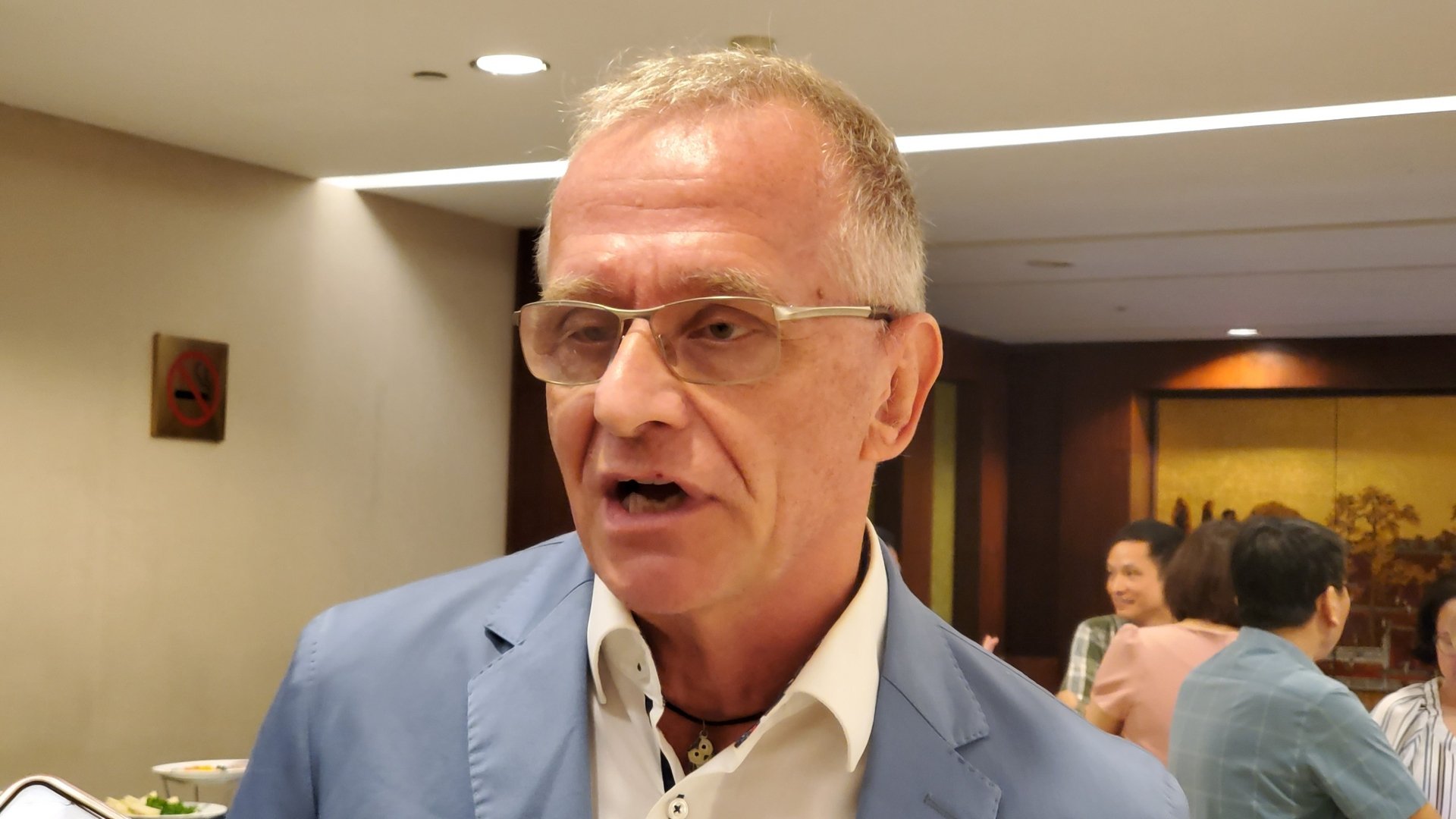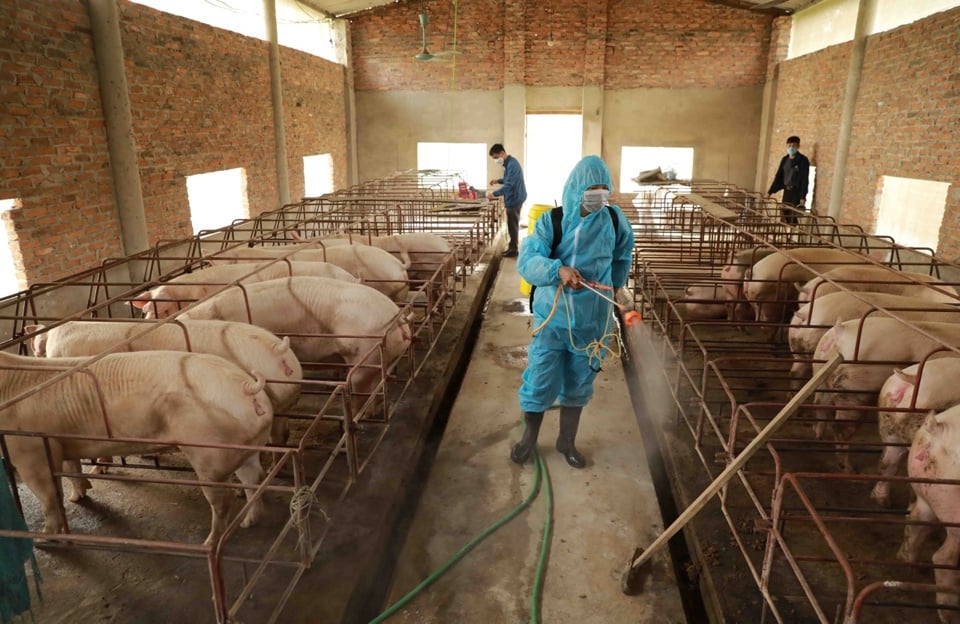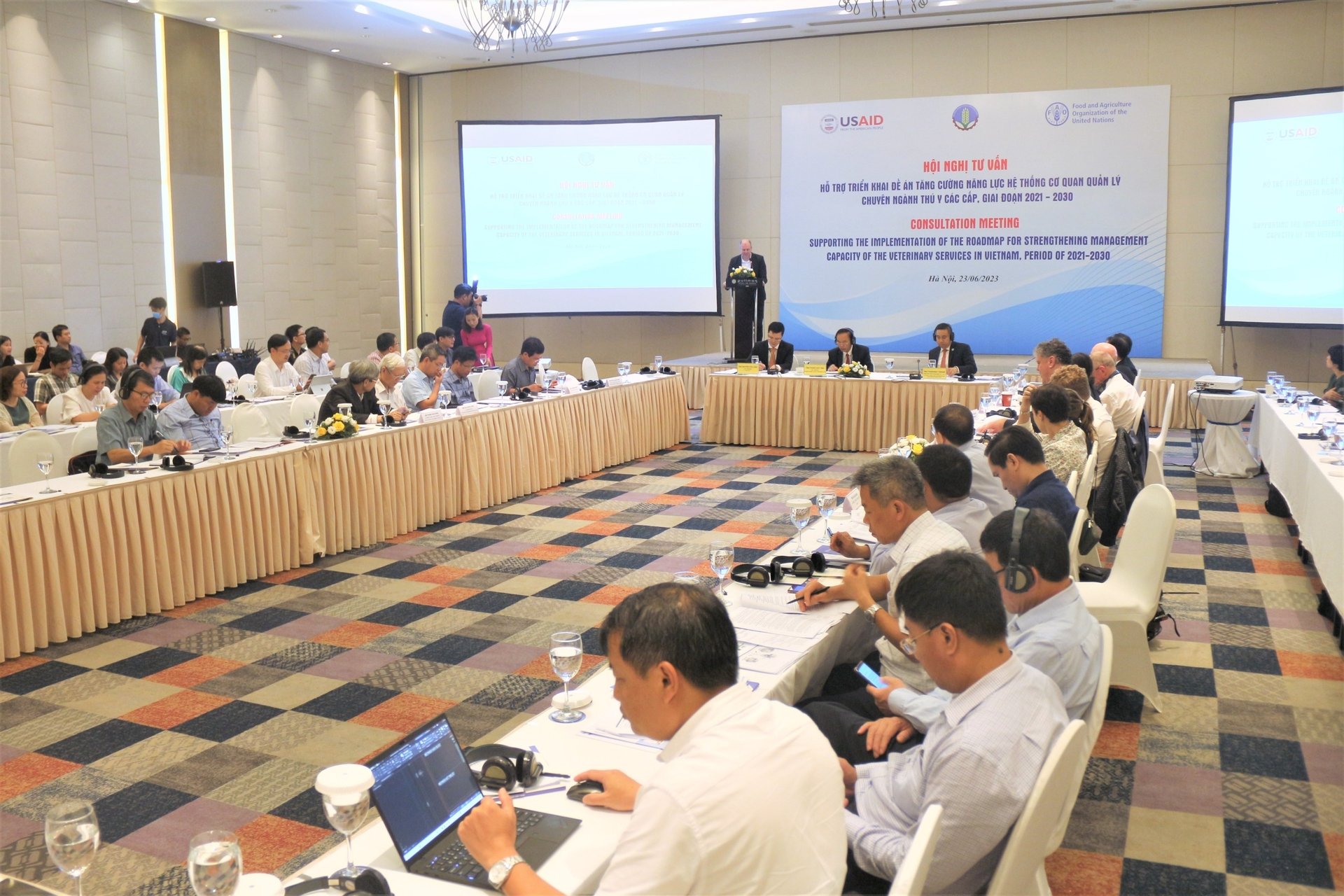November 27, 2025 | 19:57 GMT +7
November 27, 2025 | 19:57 GMT +7
Hotline: 0913.378.918
November 27, 2025 | 19:57 GMT +7
Hotline: 0913.378.918
ILRI, a member of CGIAR, works in close collaboration with MARD and national partners on livestock research in Vietnam.
Fred Unger, the regional representative at ILRI for East and Southeast Asia shared that the organization has implemented research in Vietnam that focus on solutions for the sustainable development of the livestock system while ensuring the livelihoods of small-scale farmers in the country.
The initiatives of ILRI implemented in Vietnam aim to boost Vietnam's livestock industry by providing research evidence with emphasis on food safety and animal health in traditional livestock value chains.
It aims to promote the development of the sustainable and safe animal sourced food chain through the One Health approach and market-based solutions.
He expected to maintain and strengthen their partnership with government agencies and research partners in Vietnam through ongoing CGIAR es., initiatives on One Health and sustainable animal productivity.

Fred Unger, the regional representative at ILRI in East and Southeast Asia spoke to VAN reporters.
ILRI and other CGIAR members are collaborating with partners in Vietnam to conduct extensive research aimed at finding the most practical and effective solutions for the country's animal husbandry and veterinary system. The goal is to coordinate efforts and provide support to ensure the success of these crucial initiatives.
In the sideline interview with VAN, Unger stated that Vietnam has huge small-scale processing and traditional retail sectors which can pose a challenge for the veterinary system.
“I think what is important is that you address the needs of all sectors including the small-scale sector. Solutions have to be tailored and specifically address the situation of each sector including consideration of livelihoods aspect the latter particular prominent in the small-scale sector”, Unger shared.
He believed that it is of major importance to further improve the livestock production of Vietnam and by this ensuring the livelihoods of millions of families. Solutions have to be affordable and be developed in a participatory process with all sectors.
As stated in today’s consultations the Vietnamese Government has recognized the importance of the small scale, and medium sectors and efforts are made to find strategies and sustainable solution including a strengthened veterinary sector.
ILRI and CGIAR is committed to support the Vietnamese government in this process in collaboration with national and international research partner and organisations.

Unger found that Vietnam has very huge small-scale processing sectors of livestock, and a lot of things were sold in the traditional market.
Mr. Ronello Abila, the Southeast Asia sub-regional representative for the World Organization for Animal Health (WOAH), formerly known as OIE, has expressed regard for the Vietnamese veterinary system's capabilities. He is confident that the system can adequately fulfill the demands outlined in the Scheme on Strengthening the management capacity of Vietnam's services in Vietnam, from 2021 to 2030.
In November, the World Organization for Animal Health (OIE) will be establishing a delegation to assist with the capacity assessment of Vietnam's veterinary system, including both terrestrial and aquatic evaluations. This effort is part of the PVS Evaluation Follow-up program.
Vietnam has been striving to expand its export of livestock products globally. However, the country is yet to establish a disease-free zone that meets the standards set by the World Organization for Animal Health. To boost the export of livestock products, it is imperative to construct a pandemic-free area.
The OIE has been in communication with Vietnam through various consultations, meetings, and workshops to provide technical discussions on international standards. Vietnam is striving to adhere to global standards to create areas free of diseases. According to the speaker, they are currently involved in guiding and implementing disease-free zones or founding in Vietnam while also providing technical assistance.

The “Consultation meeting to support the implementation of the roadmap for strengthening the management capacity of Vietnam's services in Vietnam, 2021-2030” is held on June 23.
As per the OIE representative, it usually takes around 1 year from the submission for the setting up of free-disease areas according to OIE standards. He believed that Vietnam could take it for granted and submit what has been done for the assessment.
The Prime Minister's Decision 414 on the Scheme for maintaining, consolidating, and strengthening the capacity of the veterinary system at all levels has been urgently designated. This is to ensure successful organization, effective management, and maintenance of disease safety in the region. Efforts are underway to develop national capacity profiles and provide guidance to localities and businesses on how to prepare export documents.
Ensuring practicality to meet the requirements of OIE and countries importing animals and animal products is an essential task that involves carrying out supervision, inspection, and organizing preliminary and final conferences to evaluate and discuss solutions for implementation.
The successful implementation of the roadmap to establish a disease-free area for poultry requires not only the efforts of the local government and agricultural sector but also the essential participation of international organizations.

(VAN) On November 27, in the meeting with Minister Tran Duc Thang, Mayor Yin Yong shared Beijing’s experience to improve environment and air quality.

(VAN) After 30 years, both sides identified strategic areas of cooperation: sustainable production, increasing coffee value and training for farmers.
/2025/11/27/4910-4-164708_294.jpg)
(VAN) On the afternoon of November 27 in Beijing, Minister of Agriculture and Environment Tran Duc Thang held a working session with several major Chinese enterprises operating in the agriculture and environment sector.

(VAN) The Department of Animal Health issued a provisional guideline requesting local authorities to increase surveillance, collect samples for testing, and conduct epidemiological investigations according to the established procedure.

(VAN) The United Nations recommends that Vietnam utilize data and artificial intelligence to enhance early disaster warnings and reduce GDP losses by 3.2% in the context of climate change.

(VAN) On the morning of November 27 in Beijing, Minister Tran Duc Thang and the Deputy Commissioner General of the General Administration of Customs of China signed a protocol on fresh jackfruit exports.

(VAN) As floodwaters recede, a vast network of irrigation works across eastern Gia Lai is emerging in a state of severe disrepair, with extensive damage demanding urgent restoration ahead of the 2025-2026 winter-spring cropping season.